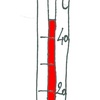
The Blob That Cooked the Pacific
When a deadly patch of warm water shocked the West Coast [of America], some feared it was a preview of our future oceans. Read the story in National Geographic.



When a deadly patch of warm water shocked the West Coast [of America], some feared it was a preview of our future oceans. Read the story in National Geographic.
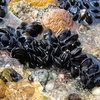
The Gulf of Maine coastline, historically home to one of the richest shellfish populations in the US, is undergoing a dramatic change, with once-flourishing wild blue mussels all but disappearing, according to ecologists. Read the story at Science Daily.
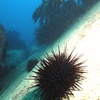
The sea floor is a habitat especially rich in species that produce calcium carbonate shells or skeletons – so-called marine calcifiers. Sea urchins, sea stars, coralline algae, crustaceans, and numerous mollusks, such as mussels, find their home here. Marine calcifiers play an important role in global biogeochemical cycles and serve important ecosystem functions. They are a food supply for other organisms and store carbon. At present, the ocean takes up …
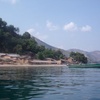
The decrease in fishery productivity since 1950 in Lake Tanganyika, located between Tanzania and the Democratic Republic of the Congo - is a consequence of global warming rather than just overfishing, according to a new report. Read the full story at Science Daily.
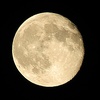
Some fish may cope with the changing chemistry of the oceans linked to global warming by permanently setting their body defences to night-time levels, the time of day when they find seawater least hospitable, a study says. Read the full story in The Sydney Morning Herald.
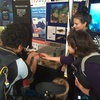
Science will dominate University of Tasmania campus calendars this month, as the best and brightest minds shine a spotlight on the subject during National Science Week. A bumper program of hands-on activities, demonstrations, forums, presentations, workshops and discovery days will run beyond the official week (13 – 21 August), evolving into a month-long celebration and showcase of science innovation.
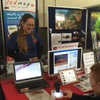
Kids enjoyed being citizen scientists and looking through a microscope at the Redmap display - and holding marine life at the Institute for Marine and Antarcic Studies display - all part of the Festival of Bright Ideas on the weekend!
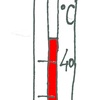
In an experiment with organisms from the Kiel Fjord, a team of biologists has demonstrated for the first time, that ocean acidification and rising water temperatures harms the fatty acid composition of copepods in the natural plankton community. As a consequence, fish might find food of poorer quality, the researchers argue. Read more in Science Daily.
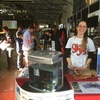
Redmap and the Instititute for Marine and Antarctic Studies (IMAS) will be at the Festival of Bright Ideas in Hobart this Saturday 13th as part of Science Week. Come and say hello to the Redmap team and have a chat about the uncommon fish and marine life you've spotted lately. Join our marine competition or see the wonderful IMAS aquarium! Read on for details...
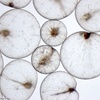
A researcher is mining data from the 1800s to help explain curious algae blooms that have been popping up in New Brunswick in the US recently. Read more at CBS News.